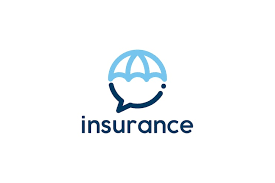Introduction
General Liability Insurance (GLI) is a fundamental form of business insurance designed to protect companies from a broad range of third-party claims. These claims may arise from bodily injury, property damage, personal injury, or advertising-related incidents occurring on the business premises or as a result of business operations.
What Does General Liability Insurance Cover?
General Liability Insurance typically provides coverage for:
- Bodily Injury
Protection if someone is injured on your business property or due to your business operations. For example, a customer slipping and falling in your store. - Property Damage
Coverage for damage your business causes to someone else’s property. For example, if a contractor accidentally damages a client’s equipment. - Personal and Advertising Injury
Covers claims related to libel, slander, copyright infringement, false advertising, or privacy violations. - Medical Payments
Pays for minor medical expenses for injuries that occur on your premises, regardless of fault. - Legal Defense Costs
Covers attorney fees and court costs associated with defending covered claims.
Who Needs General Liability Insurance?
Almost every business can benefit from General Liability Insurance, including but not limited to:
- Retail stores and restaurants
- Contractors and construction companies
- Consultants and service providers
- Manufacturers and wholesalers
- Real estate agents and property managers
- Technology firms and startups
Certain industries with high customer interaction or physical premises are at greater risk of liability claims and should prioritize GLI coverage.
Key Features of General Liability Policies
- Policy Limits
Defines the maximum amount the insurer will pay per occurrence and in aggregate during the policy term. - Deductibles
The amount the insured must pay before coverage applies (not always standard for GLI). - Occurrence vs. Claims-Made Policies
Most GLI policies are “occurrence” based, meaning they cover incidents that occur during the policy period, regardless of when the claim is filed. - Exclusions
Common exclusions include intentional acts, professional errors (covered under professional liability), employee injuries (covered under workers’ compensation), and pollution-related claims.
Why Is General Liability Insurance Important?
Businesses face unpredictable risks daily. Even minor incidents can lead to costly lawsuits, settlements, or judgments. Without GLI, a business may be forced to pay:
- Medical expenses for injured third parties
- Repair or replacement costs for damaged property
- Legal defense fees
- Settlement or court-awarded damages
These costs can threaten the financial stability or survival of a business, especially small and medium-sized enterprises.
How to Choose the Right General Liability Insurance
- Assess Your Risk Exposure
Understand the nature of your business and the likelihood of various liability claims. - Evaluate Coverage Limits
Ensure policy limits are adequate to protect against potential large claims. - Consider Additional Coverage
Depending on your industry, you might need endorsements or additional policies (e.g., product liability, cyber liability). - Compare Quotes and Insurers
Shop around for competitive rates and reputable insurance carriers.
Conclusion
General Liability Insurance is a cornerstone of risk management for any business. It provides crucial financial protection against third-party claims and fosters confidence among clients, partners, and investors. Securing the right GLI coverage enables businesses to focus on growth and innovation without the constant worry of unexpected liabilities.

